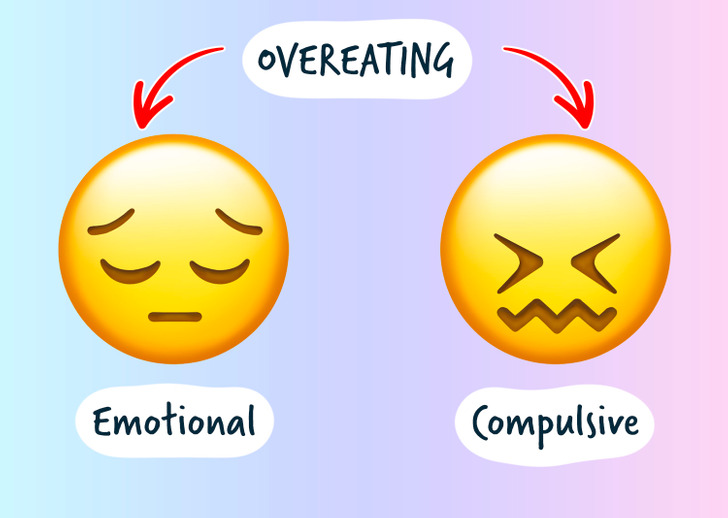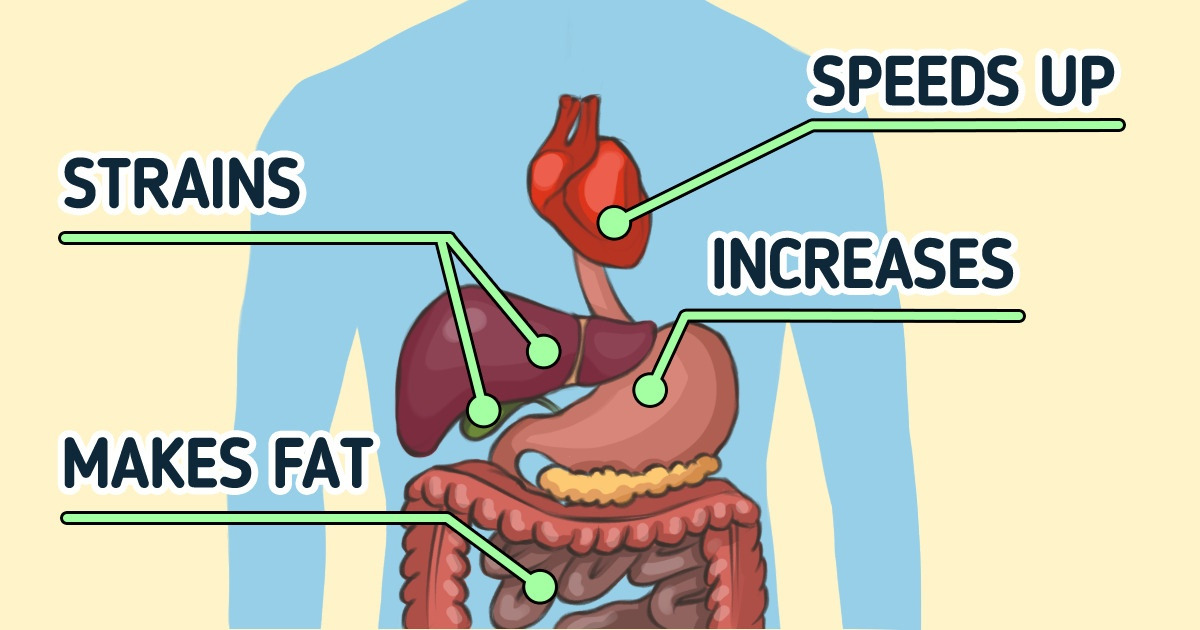
What Happens to the Body When We Eat Too Much

Just like a cell phone, our body needs to be charged. To function normally, the body needs water and food. But overeating has negative consequences for both our appearance and health.
With 5-Minute Crafts, you will find out what happens to the body when people eat too much.
Why we need food

- Food gives us energy, so we can work, play sports, walk, and simply live.
- Good food helps us be healthy. And certain foods have effects on our appearances. For example, fruits and vegetables make our skin healthier and shinier.
- Food helps us restore our muscles and build our DNA. The protein we get from meat, eggs, nuts, and beans does this.
- It gives us the necessary amount of fat. Fat tissue protects the body and internal organs.
- Certain foods help the brain function and improve memory and focus. Walnuts, fatty fish, avocado, and others have these features.
What the body gets from food
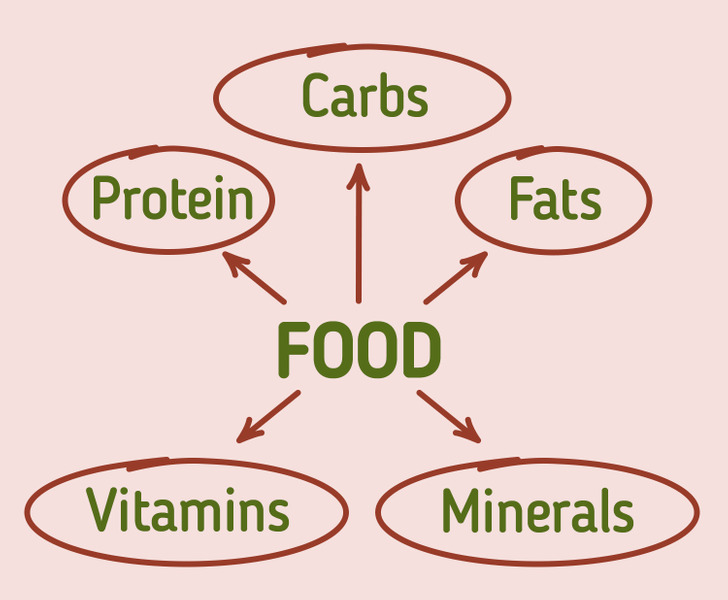
Food contains:
- Macronutrients — protein, fat, and carbs, where we get calories from. These elements are also necessary to support health.
- Micronutrients — vitamins and minerals. They don’t give us energy but help the body function properly.
Why we shouldn’t eat too much
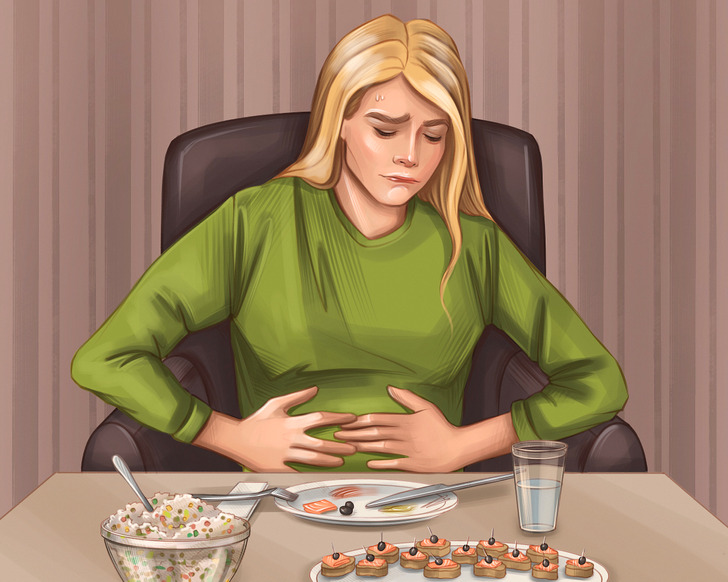
Even though food is incredibly good for the body, it can do harm when there’s too much of it. Overeating is dangerous, especially when you eat fatty and bad foods.
The main problems of overeating are:
- Poor well-being. When you eat too much, you can feel tiredness and nausea.
- Weight increase. When we overeat regularly, our bodies get a lot of calories they can’t burn. As a result, they are stored in the form of extra weight.
- Problems with bones and joints. Becoming overweight can cause pain in the bones and joints. This happens because they have to support too much weight.
- Diseases. Eating too much fatty and bad food can cause diabetes, cardiovascular disease, and many other conditions.
- Negative impact on mental health. Overeating and extra weight are connected. And the latter has a big influence on how we feel about ourselves. Many people stop liking their own appearances when they gain weight and get stressed about it.
- Lower brain function. Overeating has a negative effect on brain function.
- Sleep problems. Overeating can break your circadian rhythms which has a poor effect on your quality of sleep.
What happens when we eat too much
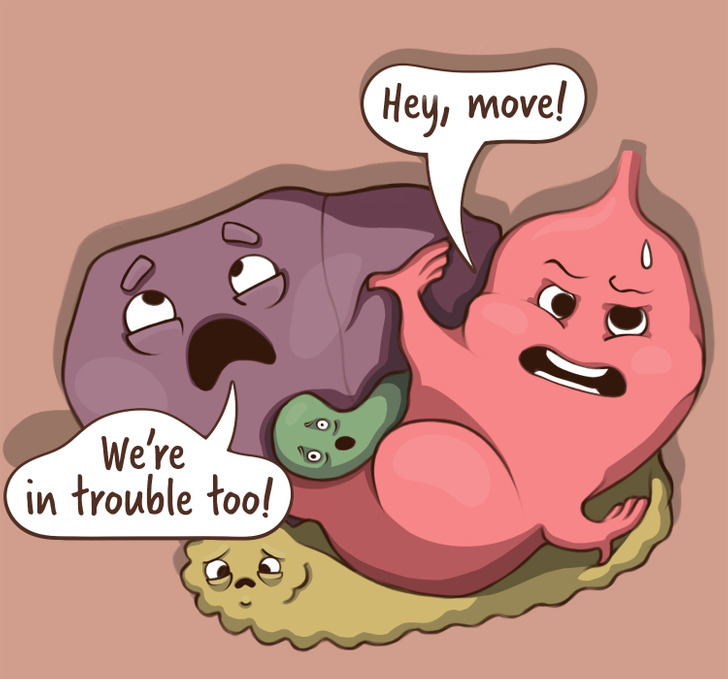
- Too much food causes the stomach to stretch and push on the other organs, making us really uncomfortable. You can feel tired and sleepy.
- The internal organs start having to work harder. They have to make extra hormones and ferments to digest the food.
- The heart starts racing.
- To digest the food, the stomach produces hydrochloric acid. When eating too much, this acid can get into the esophagus causing heartburn.
- The stomach starts creating gases, making you feel full.
- The sugar level in the body increases.
- The metabolism can speed up trying to burn the extra calories. You can feel sweaty or even dizzy.
What to do if you ate too much
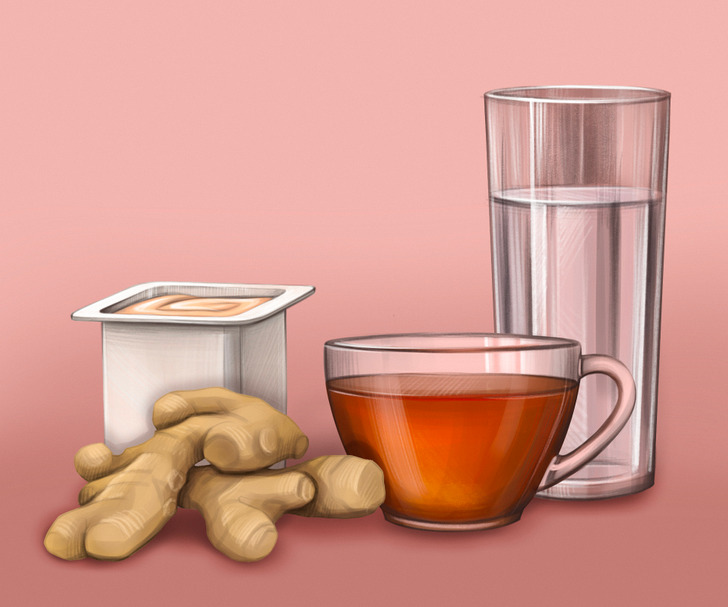
Here are a few recommendations to help you feel better after overeating.
- Don’t beat yourself up. It won’t make things easier.
- Drink a glass of water. It will help the stomach with digestion.
- Don’t lie down. Stay in a vertical position.
- Take a walk. A slow walk will help you feel better.
- Don’t drink sodas.
- Probiotics. You can help your body with probiotics. You can eat a little low-fat yogurt.
- Mint tea will help you reduce the symptoms of overeating.
- Ginger also helps the stomach digest food.
Causes of overeating
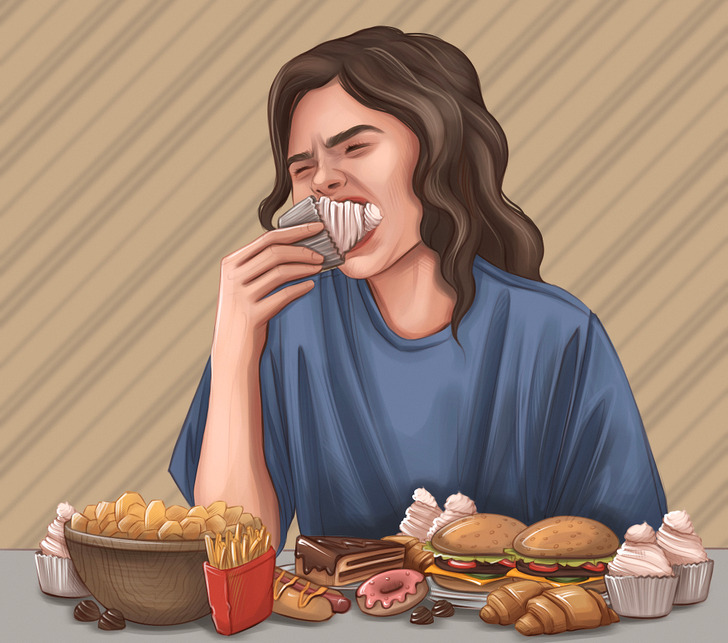
- Genes. The genes that determine eating behavior can be inherited. Genes can increase the probability that a person will have compulsive overeating, but it’s provoked by other factors.
- People. If parents overeat, very often, the child will most likely act the same way.
- Stress. Some people start eating much more after stressful events, like losing a job or breaking up with someone. But emotional overeating is temporary and it doesn’t become compulsive.
- Low self-esteem. Very often, people that overeat are not happy with their appearances because they compare themselves to the models on TV. After eating too much, they feel guilty which, in turn, can lead to more overeating.
- Diet. Sometimes, trying to lose weight leads to overeating. It happens when people have unhealthy diets, skip meals, or eat too much. If people don’t get the results they were hoping for, they can start eating too much.
Compulsive and emotional overeating
Compulsive overeating is an eating disorder where people eat too much in a very short period of time. They can’t control themselves and they can’t stop. After these episodes, they feel ashamed. These people often eat even when they are not hungry, they do it really fast, and they do it alone.
Emotional overeating is an attempt to mute emotions with food. For example, when people are sad, they might eat a lot of their favorite ice cream. People overeat when they feel really bad.
